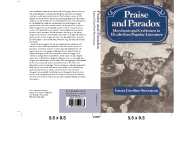Book contents
- Frontmatter
- Contents
- Acknowledgements
- Prefatory note
- Introduction: praise and paradox
- PART I ELIZABETHAN POPULAR LITERATURE
- PART II THE BUSINESSMAN IN ARMOUR
- 4 Principal citizens and chief yeomen
- 5 The merchant as usurer: a stock image in decline
- 6 The merchant as knight, courtier and prince
- 7 Lessons in diligence and thrift
- PART III THE GENTLE CRAFTSMAN
- APPENDICES
- Index
- Past and Present Publications
6 - The merchant as knight, courtier and prince
Published online by Cambridge University Press: 29 October 2009
- Frontmatter
- Contents
- Acknowledgements
- Prefatory note
- Introduction: praise and paradox
- PART I ELIZABETHAN POPULAR LITERATURE
- PART II THE BUSINESSMAN IN ARMOUR
- 4 Principal citizens and chief yeomen
- 5 The merchant as usurer: a stock image in decline
- 6 The merchant as knight, courtier and prince
- 7 Lessons in diligence and thrift
- PART III THE GENTLE CRAFTSMAN
- APPENDICES
- Index
- Past and Present Publications
Summary
It was no accident that the valiant principal citizen appeared in Elizabethan literature at the same time as the stereotype of the usurer was in decline; the authors who celebrated the virtues of merchants created the new image in a conscious effort to replace the old. Turning to the past for source material, Deloney, Heywood, Dekker and a handful of lesser writers brought the exploits of famous and semi-legendary men of trade to the attention of the Elizabethan audience; together, their works formed a popular history of merchants which showed that businessmen had a long tradition of service to the commonwealth and, more particularly, to the crown.
In portraying the close ties of merchants and their sovereigns, these authors depicted a continuing political and economic reality. Elizabeth was increasingly dependent on the loans of London merchants as her reign progressed, and the court, like the country, profited from England's trade. London's principal citizens also gave Elizabeth military assistance; they raised nearly one-tenth of all the troops levied during her reign. In return for this kind of support, Elizabeth's privy council honoured the autonomy of London's government and helped the City Fathers act effectively in times of need, obtaining such things as extra food for the city in times of scarcity. These are the kinds of ties one might expect to see reflected in the new works on merchants, those of political and economic understanding.
- Type
- Chapter
- Information
- Praise and ParadoxMerchants and Craftsmen in Elizabethan Popular Literature, pp. 107 - 130Publisher: Cambridge University PressPrint publication year: 1984

